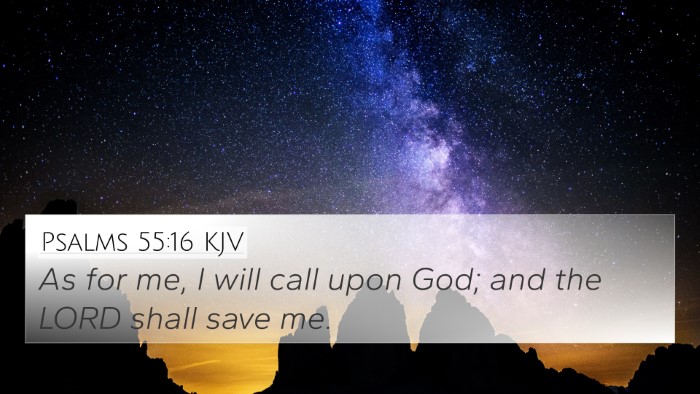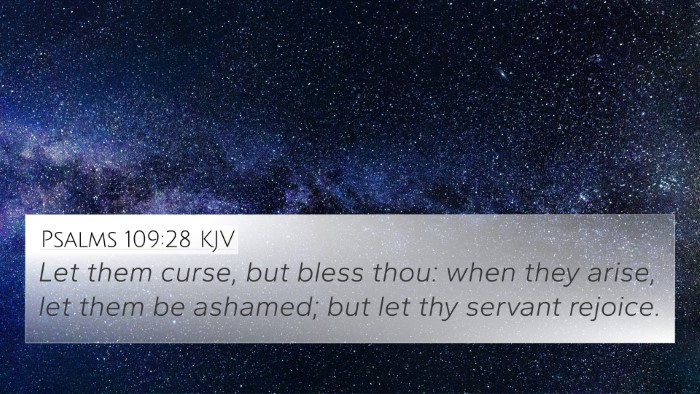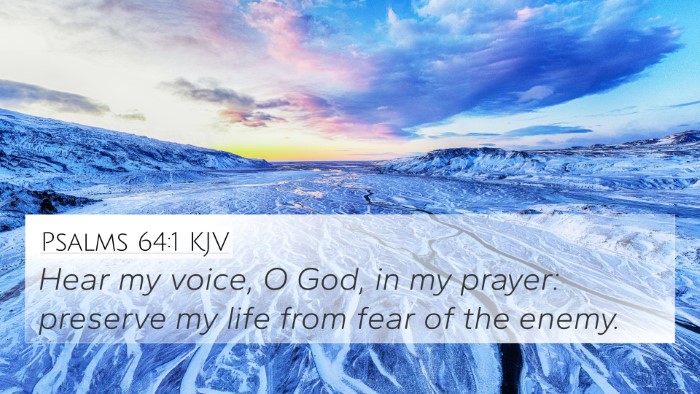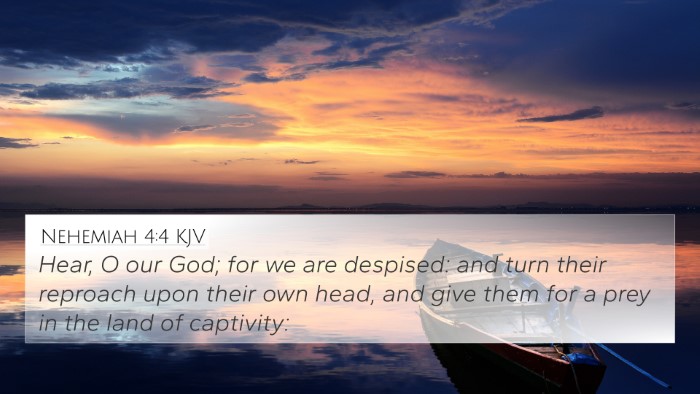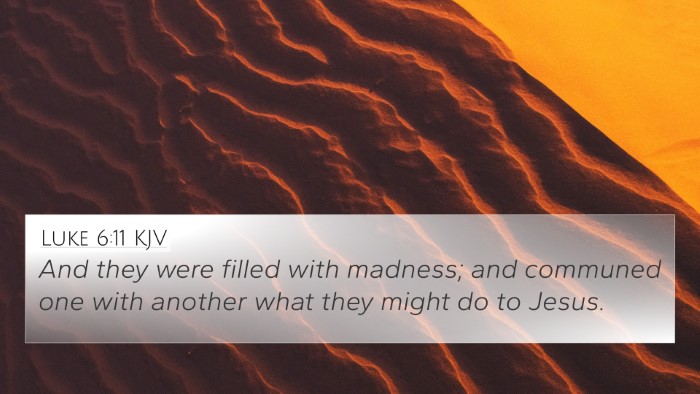Understanding Jeremiah 18:19
Verse Context: Jeremiah 18:19 states, "Give heed to me, O LORD, and hearken to the voice of those who contend with me." This verse is part of a larger narrative where the prophet Jeremiah appeals to God regarding the opposition he faces from his own people.
Meaning Breakdown
This verse captures Jeremiah’s earnest plea for God's attention amidst his struggles. The verse reflects themes of prayer, divine communication, and the burden of prophetic ministry.
Insights from Public Domain Commentaries
Matthew Henry's Commentary
Matthew Henry emphasizes the importance of prayer in the life of a believer, pointing out that Jeremiah's cry signifies a deep recognition of God’s sovereignty. He notes that Jeremiah acknowledges his reliance on God amid fierce opposition, highlighting the need for divine support when facing challenges.
Albert Barnes' Notes
Barnes provides insight into the broader implications of this plea. He explains that Jeremiah’s request for God to listen indicates the gravity of the situation, as he is surrounded by adversaries. Barnes draws parallels to the necessity of seeking God's help in troubling times, reinforcing that God is always attentive to the cries of the faithful.
Adam Clarke's Commentary
Clarke expands on the concept of contention, where he explains that it symbolizes not just physical adversaries but spiritual conflicts as well. He highlights the theological principles underlying Jeremiah’s suffering, suggesting that such trials are a part of God's plan for purification and spiritual growth.
Key Themes
- Prayer and Communication with God: This verse encapsulates the essence of prayer as a means to seek God's intervention.
- Opposition and Perseverance: Jeremiah exemplifies how believers must navigate challenges while remaining steadfast in faith.
- God's Sovereignty: Trusting in God's will, even when facing opposition, is a core message in this passage.
Cross-References
Jeremiah 18:19 can be linked to various other scriptures that enhance its understanding:
- Psalm 17:1: "Hear the right, O LORD, attend unto my cry..." - This verse echoes the theme of seeking God’s attention in times of trouble.
- Job 13:23-24: "How many are mine iniquities and sins? Make me to know my transgression and my sin." - Job’s plea connects to Jeremiah's struggle with the acknowledgment of sin.
- Isaiah 53:3: "He is despised and rejected of men..." - Resonates with the rejection experienced by prophets like Jeremiah.
- Luke 18:1: "And he spake a parable unto them to this end, that men ought always to pray, and not to faint." - This New Testament verse reflects the importance of perseverance in prayer.
- Romans 8:31: "What shall we then say to these things? If God be for us, who can be against us?" - Reinforces the assurance of God’s support in the face of opposition.
- Ephesians 6:12: "For we wrestle not against flesh and blood, but against principalities, against powers..." - This verse aligns with Clarke’s understanding of spiritual conflict.
- 1 Peter 5:8: "Be sober, be vigilant; because your adversary the devil, as a roaring lion, walketh about, seeking whom he may devour." - Similar theme of vigilance amidst opposition.
Connections Between Bible Verses
The verse serves as a critical link in understanding the prophetic voice and God’s responsiveness to the cries of His chosen. By analyzing scriptural parallels and references, believers can see a thematic continuity throughout the Bible, where God continually engages with His messengers amidst their trials.
Thematic Bible Verse Connections
- Exploring the relationship between Jeremiah 18:19 and the theme of prophetic suffering can yield insights into God's overarching narrative.
- The verse invites reflection on how God listens and answers when we call on Him, a recurring theme across both Testaments.
- Understanding the need for perseverance in faith while confronting adversities is a unifying principle illustrated through cross-references.
How to Use Bible Cross-References
Utilizing a Bible concordance can facilitate the discovery of connections between various scriptures, enriching your study and understanding of specific passages like Jeremiah 18:19. Engaging with a cross-reference Bible study guide provides a framework for exploring thematic links, character studies, and doctrinal themes present in the Scriptures.
Conclusion
Jeremiah 18:19 serves not merely as a plea for divine attention but also as a foundational verse for understanding God’s involvement in the lives of His servants, encouraging believers to persist in prayer during troubling times. By examining this verse alongside others, we discover deeper insights into the nature of God, the trials of the faithful, and the interconnectedness of Biblical texts.






